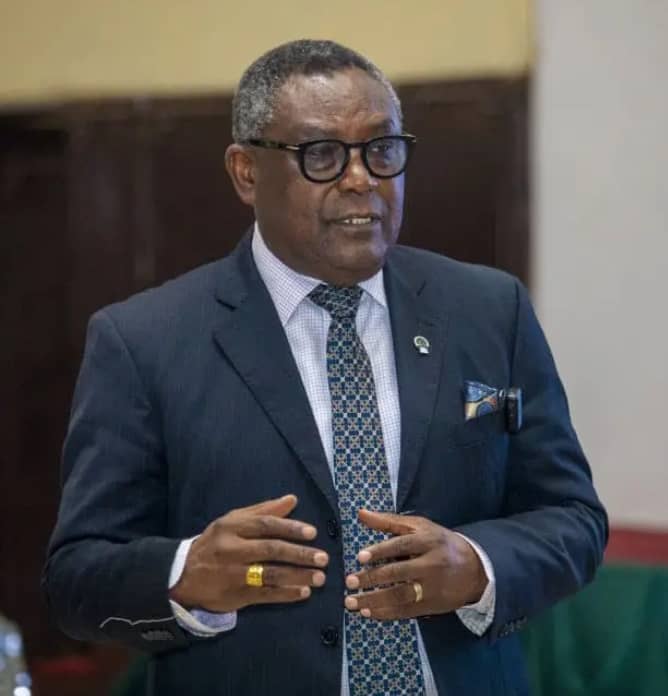The Chairman of Tioluwani Community Development Association (CDA) in Iju Ishaga, Oremeji Street, Venerable Adelowo Adesina, has expressed concerns over the inadequate government presence in his community.
In an interview with The Record, Adesina highlighted major challenges the neighbourhood faces, including poor infrastructure and insufficient governmental support, while also shedding light on the CDA’s self-driven efforts to address these issues.
Despite promises from Ifako-Ijaiye local government, Tioluwani community still struggles with poor roads, inadequate drainage systems, and a lack of streetlights.
“We would have loved to have good drainage, good roads, street lights, maybe even a community health centre,” said Adesina, adding that these are basic amenities that would significantly enhance the residents’ welfare. Though he acknowledges that the government cannot be everywhere at the same time, he is disappointed by the lack of meaningful progress despite several interactions with local officials.
The chairman recounted a particular incident where the local government promised to tar Oremeji Street after conducting surveys, but the project never materialised.
“We followed up persistently to ensure that they fulfilled the promise, but it never happened,” Adesina said.
Community-led initiatives
In the absence of sufficient government intervention, the Tioluwani CDA has taken matters into its own hands. Adesina explained that the residents have pooled resources to fund various community projects, including purchasing a transformer and upgrading electrical infrastructure by replacing old wires.
The community also maintains its roads through periodic grading and the purchase of rubble to ensure they remain motorable.
Security is another area where the community has had to step in.
The CDA has installed gates at three key points and hires security personnel to patrol the area. They also maintain close collaboration with local police authorities to ensure the safety of the neighbourhood. “We liaise with the police so that from time to time, they can come to our neighbourhood to ensure security,” he said.
Health is also a priority for the community, with five resident doctors and a team of nurses offering free health services. The CDA organises regular medical outreach programmes, providing basic checks for conditions such as high blood pressure and diabetes.
In more serious cases, the CDA has stepped in to cover the costs of hospital referrals for patients needing further treatment.
Appeals for government assistance
While the community has made significant strides, Adesina emphasised the need for more substantial government support.
“We would sincerely want them to do the roads and the drains,” he urged, explaining that proper drainage would prevent issues like stagnant water and reduce the spread of diseases such as malaria and cholera.
He also called for the establishment of a primary health centre in the area to provide preventive healthcare services and promote hygiene practices.
Tioluwani CDA has seen some success with government palliatives in the form of food aid, but Adesina insists that such efforts are unsustainable. He advocates for more long-term, institutionalised welfare programmes that address the root causes of the community’s struggles.
Cooperation and challenges
The CDA has enjoyed a good relationship with Ikeja Electric, particularly in ensuring that residents pay their electricity bills and maintain their power supply.
“We have over 80% prepaid meters in this neighbourhood,” Adesina noted. He credited the smooth cooperation with Ikeja Electric for reducing power supply issues.
In terms of security, Adesina expressed gratitude for the community’s relative safety but stressed that more support from the government could strengthen their efforts.
“We thank God there’s not been any major security breakdown here because of the security architecture we’ve put in place,” he said, but added that government backing would bolster their initiatives.
Adesina also discussed how the CDA mediates disputes within the community, especially in landlord-tenant disagreements and matters that affect the broader neighbourhood. He highlighted a particular incident where a resident caused damage by bringing a heavy trailer into the neighbourhood, leading the community to insist that the resident repair the broken slabs and apologise to those affected.
However, he admitted that not all residents contribute equally to the community’s development efforts.
“We have individuals who are impossible by nature. They will not pay their development levy or security levy but still demand that things be fixed,” he said, describing the frustrations the CDA faces in maintaining collective participation.
Despite these challenges, Adesina remains optimistic about the community’s ability to work together.
“We meet from a point of common interest, and when there’s a common interest, there has to be understanding,” he said, emphasising the importance of good neighbourliness in sustaining a peaceful and productive environment.


